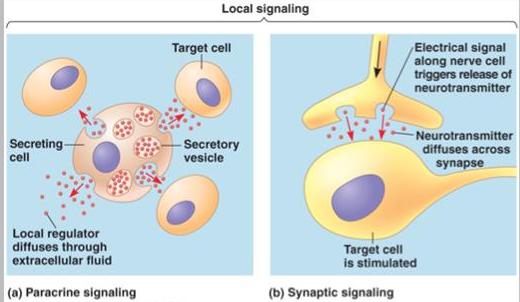Hormones are chemical messengers of the body. These are specific molecules made by special cells and released into the circulatory system where they travel to target cells causing a specific response.
Hormone Types: These are six categories of hormones:-
- Hormones derived from amino acids: Most frequently derived from tyrosine are small and water soluble. For example Epinephrine.
- Steroid: These are the fat soluble molecules produced from the Cholesterol. For example Sex Hormones.
- Peptide Hormones: Derived from chains of Amino Acids or Peptides. May act as signal molecules in Nervous System and Endocrine System of the body.
- Local Regulators: Chemical messengers that affect target cells of the body close to their point of secretion. Histamine, Neurotransmitters, and Interleukins are local hormones that have limited effects.
- Pheromones: The chemical signals that function between animals of the same species. Small amounts are used to attract mates, act as territorial markers, or act as an alarm substance.
- Prostaglandins: These are the modified fatty acids released into extracellular fluid to function as local regulators. These are derived from lipids in the plasma membrane of the cells. They work in Antagonistic actions. May induce fever and inflammation (See below Figure)



